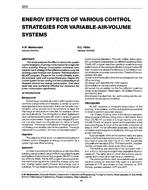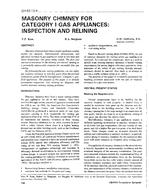The paper focuses on the characteristics of cross-infection risk in a room with an air distribution which creates fully mixed conditions. Several experiments are made to develop models for the flow in the microenvironment and models for the cross-infection risk.
The first part of the measurements covers experiments with one thermal manikin simulating a person. The exhalation flow in the microenvironment is examined in order to provide a description of its behavior, and to create a mathematical model of velocity and concentration distribution. The description works for different activity levels (breathing frequency and volume flow) and it includes a study of the influence of the thermal boundary layer of the manikin.
Second part covers measurements with the use of two manikins. It is examined how one exhaling manikin can influence another regarding cross-infection risks. This study includes detailed analyses of the flow in the microenvironment of the two manikins and a study of the importance of the individual distance between the manikins. Also the importance of the activity level, difference in heights, breathing through mouth or nose is studied in details.
Citation: ASHRAE Papers CD: 2014 ASHRAE Winter Conference, New York, NY
Product Details
- Published:
- 2014
- Number of Pages:
- 8
- File Size:
- 1 file , 1.8 MB
- Product Code(s):
- D-NY-14-C020


